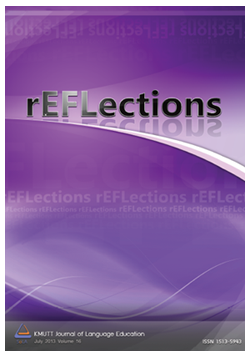A Study of Ellipted Subjects Translation Strategies: A Case Study of Thai EFL Learners in an Introductory Translation Course
Main Article Content
Abstract
The primary purpose of the study is to examine how Thai EFL learners translate ellipted subjects in a Thai news article to English and to explore whether there is any significant relationship between the skills of writing and reading in English and translation proficiency. The participants of the study include eighteen Thai freshmen from different intended majors in the Faculty of Arts, Chulalongkorn University. The data used in this research are a test on Thai to English news article translation taken individually by the students during a translation course. Their writing and reading scores from their previous English course are also used to compare their writing and reading skills with their Thai to English translation proficiency. The results revealed that the most frequently adopted strategy for translating omitted Thai subjects among the students was the use of personal pronouns after separating long complex sentences into short simpler ones, followed by the use of conjunctions, preparatory it, and structural transformation. The use of participles and the relative pronoun “who” were the least frequently adopted strategies. Furthermore, there exists a significant relationship between reading in English and translating from Thai to English, but not between writing in English and Thai to English translation. Implications for classroom practices and further research are also discussed.


